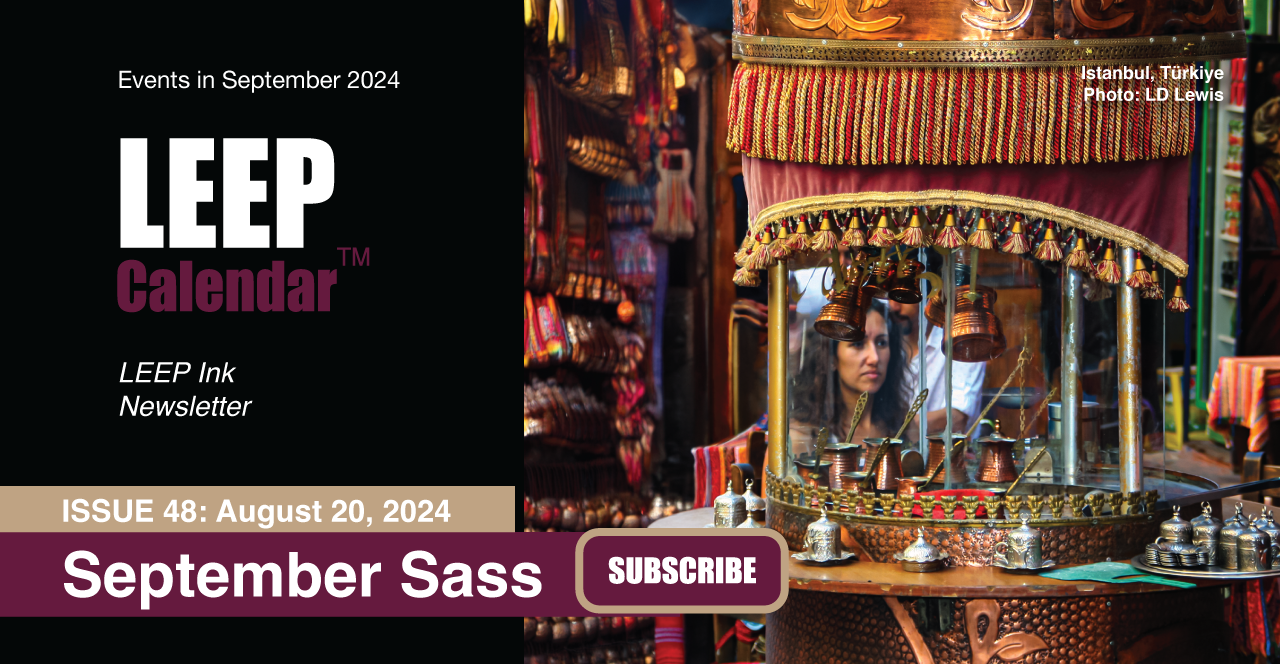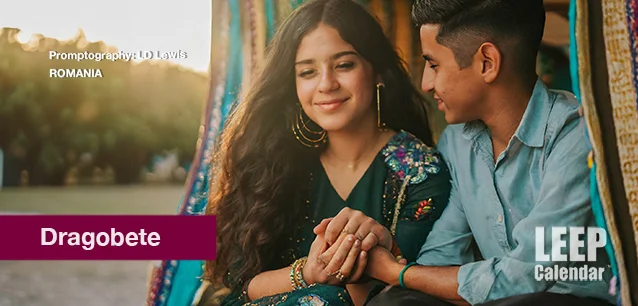 AD
AD
Today is: November 24
Scroll to explore events active on this date.
LEEP INK FEATURES

August is Appropos
A toddler playing in the fountain at a park in Santa Fe, New Mexico—Photo LD Lewis. In August, we live through the Dog Days of Summer. It's hot and often humid, and those ...

September is Sassy
Can you hear that sigh of relief from parents worldwide? Yes! September marks the return of students to school, a global phenomenon. Preparations for the ACT and SATs begin earnestly for ...

OOH LA LA, October
October is the busiest month for events, with 5% more happening than in May, the second most eventful month. Sailing enthusiasts will be glued to the finals of this year's Am...
About Romania's Dragobete
Ends: Feb 24, 2025
DESCRIPTION:
Dragobete, a traditional Romanian holiday, celebrates love and spring's arrival, much like Valentine's Day in other cultures. Held annually on February 24, Dragobete nestles happily in Romanian folklore and is named for the mythical, youthful, and joyous god of love.
This holiday's origins trace back to ancient Dacian traditions. Legend says Dragobete is the son of Baba Dochia, a figure marking the transition from winter to spring. Dragobete signifies romantic love and the rebirth of nature, aligning with the early signs of spring in Romania.
Traditionally, Dragobete was a day when young men and women would dress in their best clothes and gather in the forest to collect early spring flowers. They would then sing and dance, celebrating the end of the harsh winter. It was common for romantic relationships to begin on this day. Romanians believed participation in Dragobete customs ensured happiness and love for the entire year or protection from illness for the rest of the year. Single women hoping to marry in the year ahead sought to encounter a man on Dragobete to ensure good luck in love throughout the year.
Dragobete is still celebrated in modern Romania, though some traditional customs have evolved. Today, it is common for people to express love and affection for their partners, family, and friends through gifts, messages, and special activities. The holiday also serves as a reminder of Romania's rich cultural heritage, bridging ancient traditions with contemporary practices.
Despite the influence of Valentine's Day in contemporary Romanian culture, Dragobete remains an anticipated and distinct symbol of love and spring's renewal. This celebration is a testament to Romania's cultural identity, blending historical folklore with modern expressions of affection and community.
VIDEOS
SUPPORTING DOCUMENTS
Currently, this event does not have supporting documents.
ADDITIONAL IMAGES
Currently, this event does not have supporting images.
Where would you like to go now?
 AD
AD


/footer-logo.svg)
